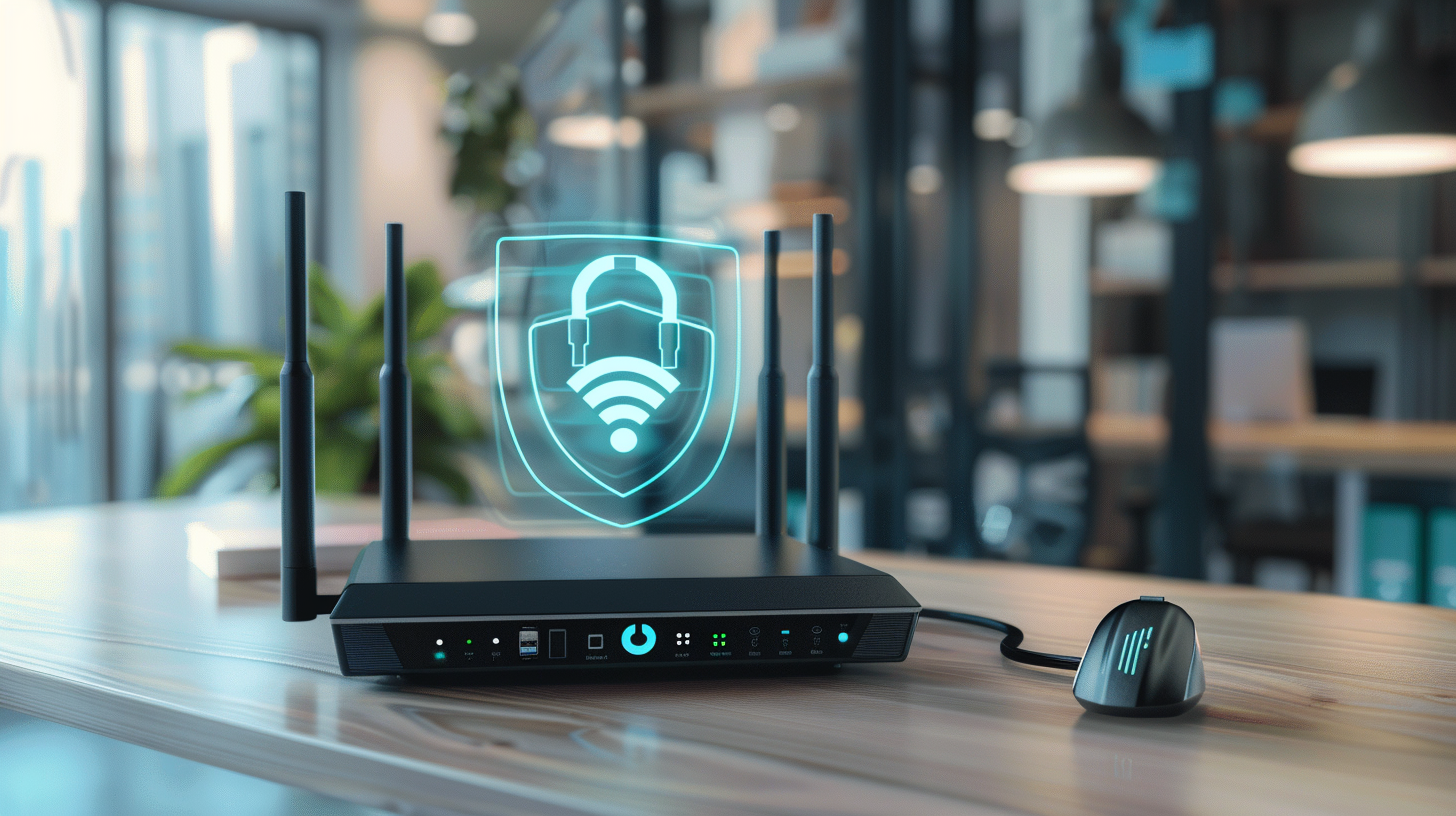How to Set Up a Secure Wi-Fi for Small Business
In today’s digital-first environment, providing a secure Wi-Fi network is crucial for small businesses. Not only does it protect sensitive data from cyber threats, but it also ensures that your operations run smoothly and efficiently.
Understanding Wi-Fi Security Basics
Security Protocols
Wi-Fi security protocols are the backbone of network security, dictating how data is encrypted and transmitted over the air. The most current protocols are WPA (Wi-Fi Protected Access), WPA2, and WPA3, with WPA3 being the latest and offering the highest level of security. These protocols prevent unauthorized access and ensure that data cannot be intercepted or tampered with by cybercriminals.
Strong Passwords
The importance of strong, complex passwords cannot be overstated. A strong password is your first line of defense against unauthorized access to your Wi-Fi network. It should be at least 12 characters long, combining letters (both uppercase and lowercase), numbers, and symbols. Avoid using common words or phrases, personal information, or anything that could be easily guessed or cracked by automated tools.
Hidden SSIDs
The Service Set Identifier (SSID) is the name of your Wi-Fi network that appears in the list of available networks. By default, SSIDs are broadcast to make it easy for users to find and connect to networks. However, hiding your SSID adds an extra layer of security by making your network invisible to casual passersby. This means that only users who know the exact name of your network can attempt to connect to it. While not foolproof, hiding your SSID can deter less sophisticated attackers.
Business-Grade Equipment
For small businesses, investing in business-grade Wi-Fi equipment is a smart move. Business-grade routers and access points are designed with advanced security features and capabilities not found in consumer-grade hardware. These may include better support for virtual private networks (VPNs), advanced firewall protections, the ability to create multiple Wi-Fi networks (e.g., separate networks for staff and guests), and more detailed traffic monitoring and control options. Business-grade equipment also typically offers better performance and reliability, supporting a smoother operation of your business activities.
Understanding these Wi-Fi security basics sets the stage for creating a secure network environment for your small business. By prioritizing strong passwords, considering hidden SSIDs, and opting for business-grade equipment, you lay the groundwork for a secure, efficient, and resilient Wi-Fi setup that supports your business’s needs while protecting against cyber threats.
Steps to Set Up a Secure Wi-Fi Network
- Choose a Reliable Wi-Fi Router: Opt for a business class router that supports the latest security standards (preferably WPA3) and offers the ability to create a separate network for guests.
- Secure Router Settings: Change the default admin username and password to something strong and unique. Regularly update the router’s firmware to protect against vulnerabilities.
- Enable Network Encryption: Use WPA3 encryption for your Wi-Fi network. If WPA3 is not available, WPA2 is the next best option.
- Set Up a Hidden Network with a Strong Password for Business Network Resources: To further secure your business’s critical data and network resources, set up a hidden network (SSID not broadcast) for exclusive use by your business. This hidden network should be secured with a strong, complex password that meets high-security standards. This step reduces visibility to potential attackers and limits access to your most sensitive business operations. Make sure to communicate the network name and password securely to only those within your organization who require access.
- Set Up a Guest Network: Keep your business traffic separate by setting up a guest network for visitors. This limits access to your business’s main network and adds an additional layer of security by isolating external devices from accessing critical business resources.
- Regularly Update and Monitor: Regularly check for and install updates for your Wi-Fi hardware and monitor network activity for any unusual patterns that might suggest a security breach.
How We Can Help
Our company specializes in providing IT and cybersecurity solutions tailored to the needs of small businesses. Contact Us and we can assist in setting up a secure Wi-Fi network by:
- Selecting and Configuring the Right Hardware: We help you choose the best routers and networking equipment that meet your business’s specific requirements.
- Implementing Advanced Security Measures: Beyond basic setup, we implement advanced security measures such as VPNs, firewalls, and intrusion detection systems to further protect your network.
- Ongoing Support and Monitoring: We offer continuous monitoring and support services to promptly address any security concerns and ensure your network remains secure against evolving threats.




0 Comments